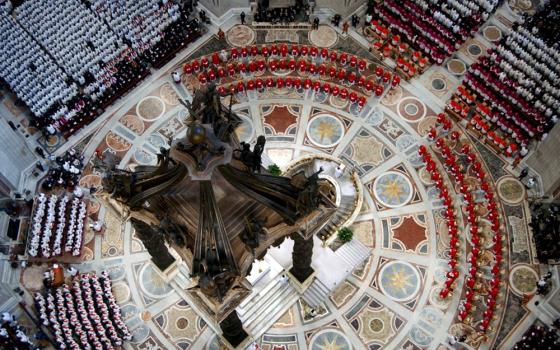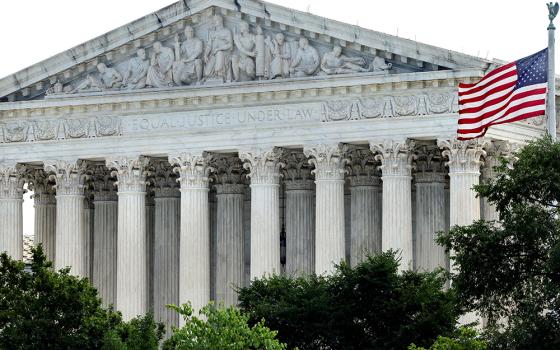"Super Bowl or 'Downton'?" I asked my neighbor as she walked her dog last night. "We switched back and forth," she replied. Me? The game was so lopsided by the time "Downton Abbey" came on, I abandoned the 21st century for the Roaring '20s for the entire hour and, apparently, I did not miss much.
Those of you who are more technologically proficient are asking, "What about TiVo?" I confess, I do not have one, never have, am not sure if TiVo is a gadget or a service, and whenever someone says the word TiVo, my first thought is that they have a slight speech impediment and are commenting upon the once famous, now sidelined, Jesus-thanking quarterback Tim Tebow. But I digress.
The national obsession over the Super Bowl makes little sense to me. While last night's game was one of the least interesting Super Bowls in memory, everyone knows that the best football game of this season was Alabama vs. Auburn, and we knew it was going to be the best game of the year before it happened. The stunning way that game ended -- a missed field goal attempt, caught and run back for a touchdown -- was icing on the cake. College football is not only a far more interesting game, but it affects people differently from the way a pro football team does. Yes, Seattle's players and coaches couldn't stop talking about their "12th man" last night, but college loyalties run deeper than pro loyalties, not least because the players stick with one team in college. Pro teams, not just football, have lost much of their ability to generate civic pride since the advent of free agency and the athletes' subsequent habit of jumping to the highest bidder.
This loss of civic pride quotient was compounded in those cities where the owners of the franchise picked up and moved the whole team to another city. I remember when the Colts left Baltimore and moved to Indianapolis, which seemed like yet another nail in the coffin of a once great American city. In the sequel, Baltimore got the last laugh and is, in fact, a thriving city. The willingness of owners to uproot an entire franchise has also resulted in weirdness, such as the fact that the NBA team is Utah sports the unlikely name "the Jazz."
Sports has long fascinated humankind, and we all need our diversions. Still, I do not understand how and why the Super Bowl becomes such a big event. Yesterday, at the vet, while Bernie the black lab was getting X-rays and tests, the animal hospital's TV was tuned, appropriately enough, to Animal Planet. The Puppy Bowl was playing. At Masses around the country, priests mentioned the Super Bowl in their homilies. Cardinal Timothy Dolan deftly got in on the action, speaking about Vince Lombardi's deep commitment to his faith and his hometown. Bravo to the cardinal: That was great!
Of course, with every human enterprise, the sin accompanies the grace. And, so, the Super Bowl has become a prime venue for sex trafficking. Millions of dollars are wagered and lost on the game's outcome. And the commercialization of the event leaves less and less time for the actual game: How many times did we see news clips about the Budweiser ad, which, admittedly, was a well done ad but was, still, just an ad!
The obsession with "Downton Abbey" is of a different sort. Americans, perhaps because we are always chattering on about progress, and equality, and the American Dream, seem to have a special nostalgia for times and cultures of severe social stratification. Think "Gone with the Wind." And when the nostalgia comes with an English accent, we go bonkers. Seattle quarterback Russell Wilson, the 5'11" quarterback who made it despite his diminutive size, likes to say things like, "You can be whatever you want to be," which is a lie, and Mr. Wilson, a devout Christian, should know better than to tell a lie. But his lie is part of the mythos of America. Perhaps we all feel the need for some engagement with servants and liveries and "the gong" as an antidote.
I missed the first two seasons of "Downton." Not sure why. I got caught up and have become a fan. The most obvious reason is the simplest: Maggie Smith. But "Downton" is also not like watching regular TV. For starters, it is run commercial-free because it is on public television: God bless PBS! More importantly, the script and the characters are believable, although the first episodes of this fourth season struggled a bit. It is funny, but there is no laugh track. Nothing is over-the-top. You can empathize with these people, both upstairs and downstairs, not because you know what it feels like to a the lord of the manor or because you have experience as a lady's maid, but because the plot and the acting are of such good quality, you know how they will react to the situations that come their way. Or am I the only one who really, really wants Mrs. Hughes to be my neighbor?
These cultural obsessions come and go. When I was in college, Granada Television produced "Brideshead Revisited" -- those Brits again! -- and it became the rage. In our dorm, for the final episode, we all dressed up in period attire and watched it together. I, alone among my heathen friends, undergrads at Catholic University all, was thrilled when God won at the end! I am told that when shows like "American Idol" and "Survivor" first began, they had a similar cultural saturation, although I am happy to report that I missed them both. And in sports, I think baseball was bigger in the '60s and '70s when I was growing up, and football not so big, but my impression may be the result of having grown up in Red Sox nation.
I feel like an alien in the culture at times when I think that as many people, or more, watch the Super Bowl as vote in a presidential election. People sit down for a drink on Mondays and talk about how they can't believe what happened to Anna or Carson, but then speak nastily to their waiter. And in this sports-obsessed society, obesity remains a pressing health issue. All cultures are messy and some sense of structure and sanity is placed upon them after the fact, by historians, who must abstract the cultures they study to make them fit for rational organization. Still, our messy, obsessive culture is the culture we are called to evangelize. It is a challenge. It is also the only thing that matters ultimately. Just ask Russell Wilson.





